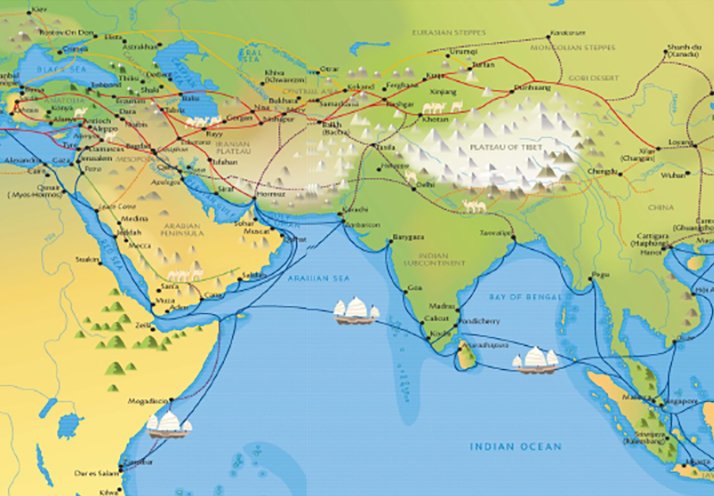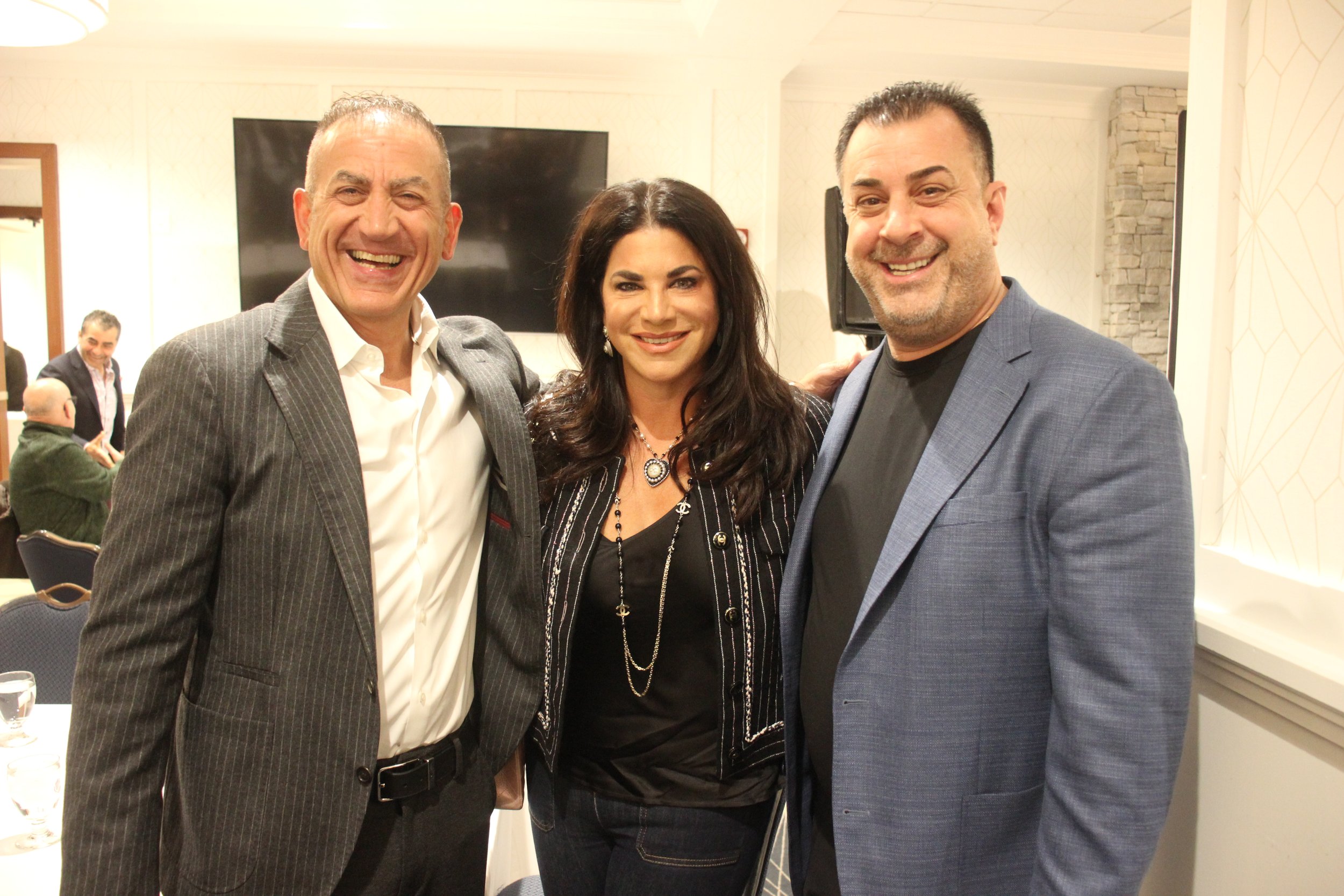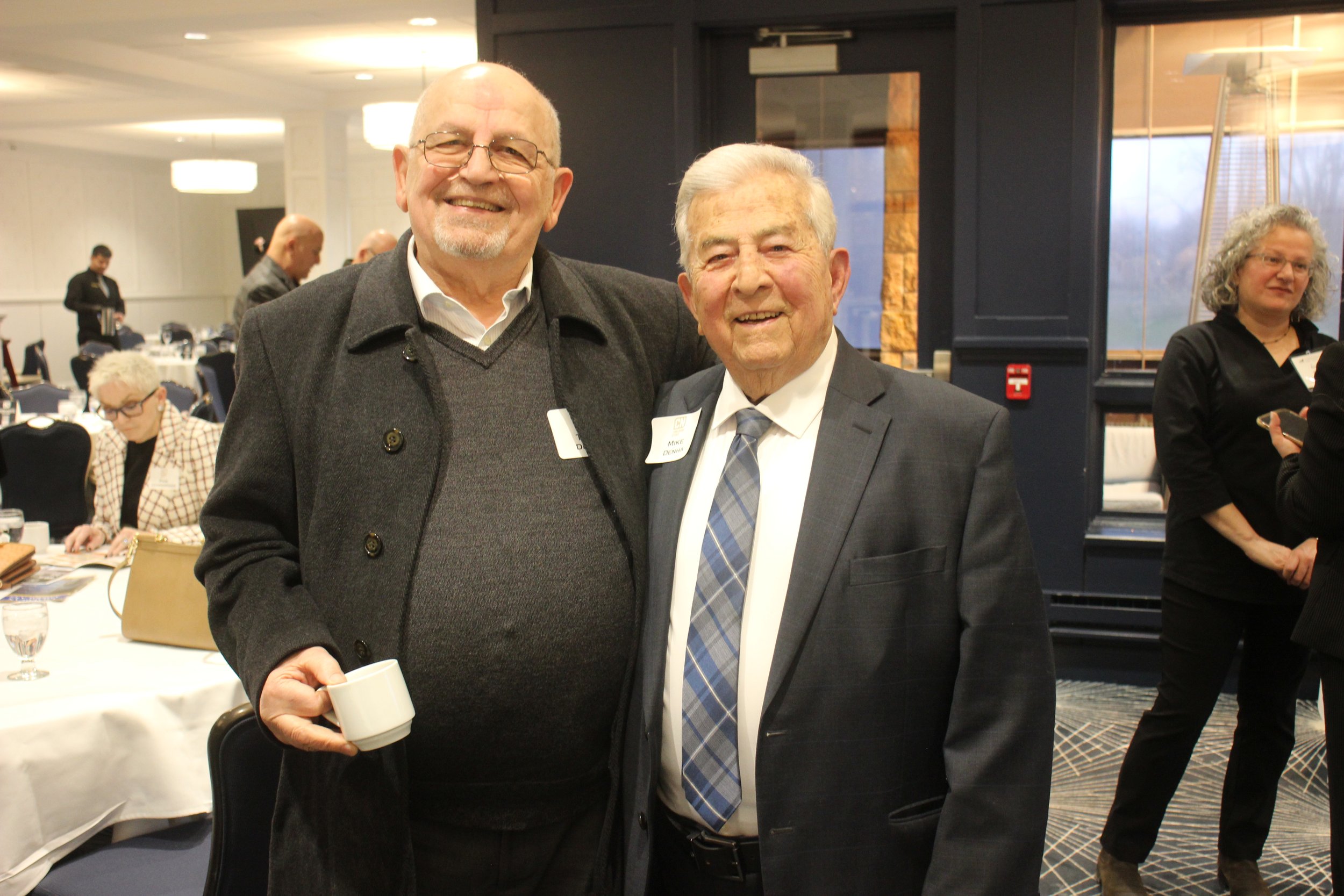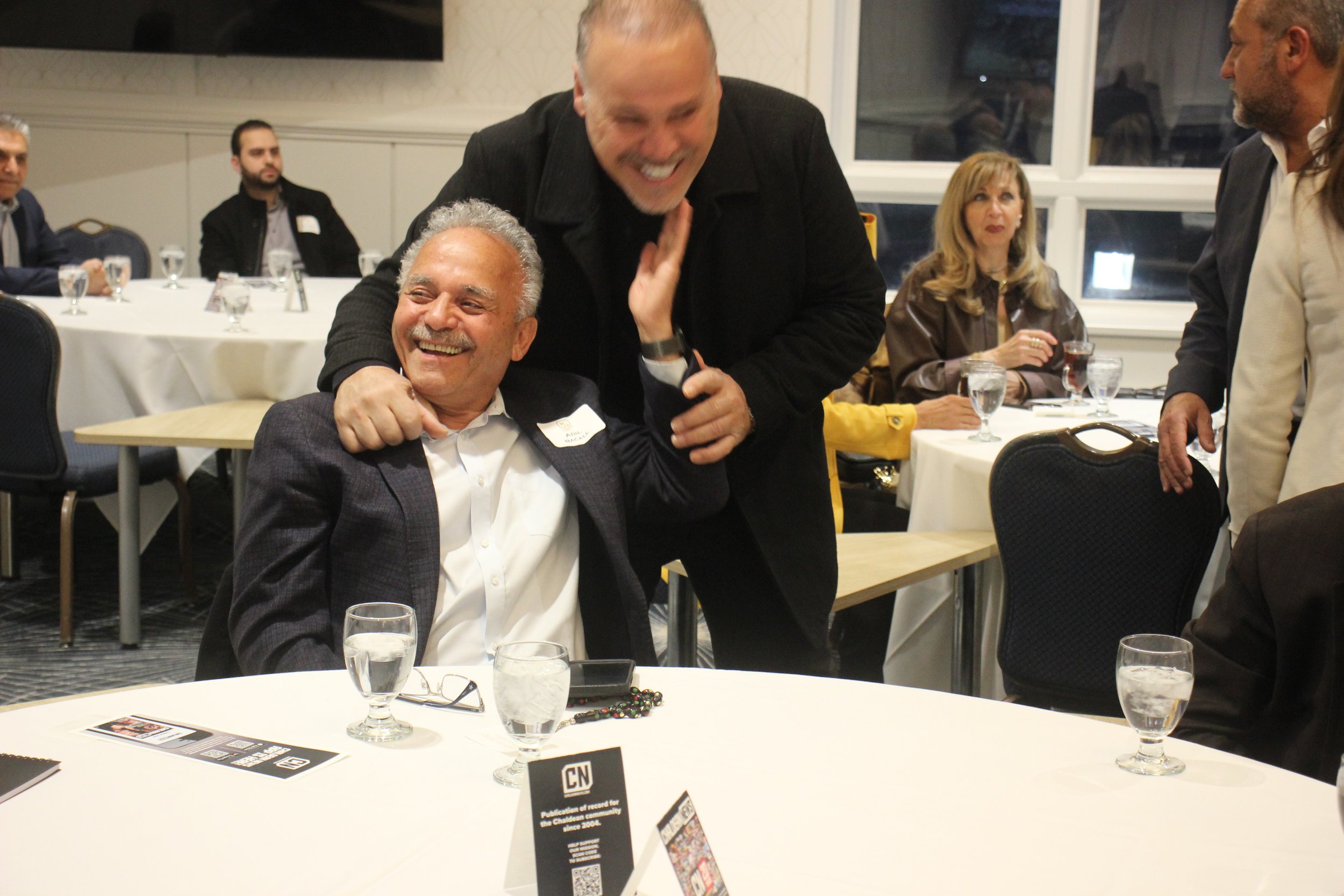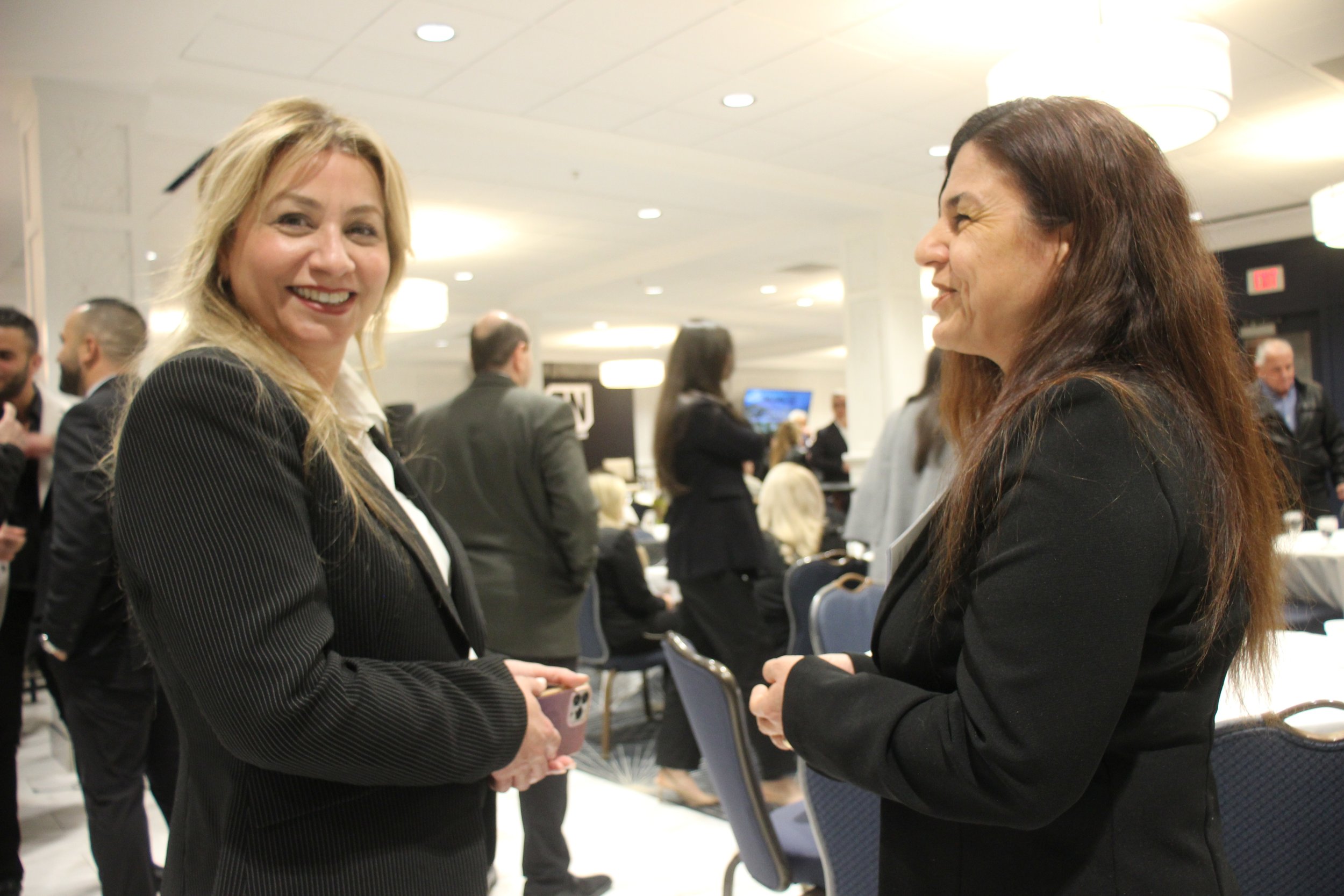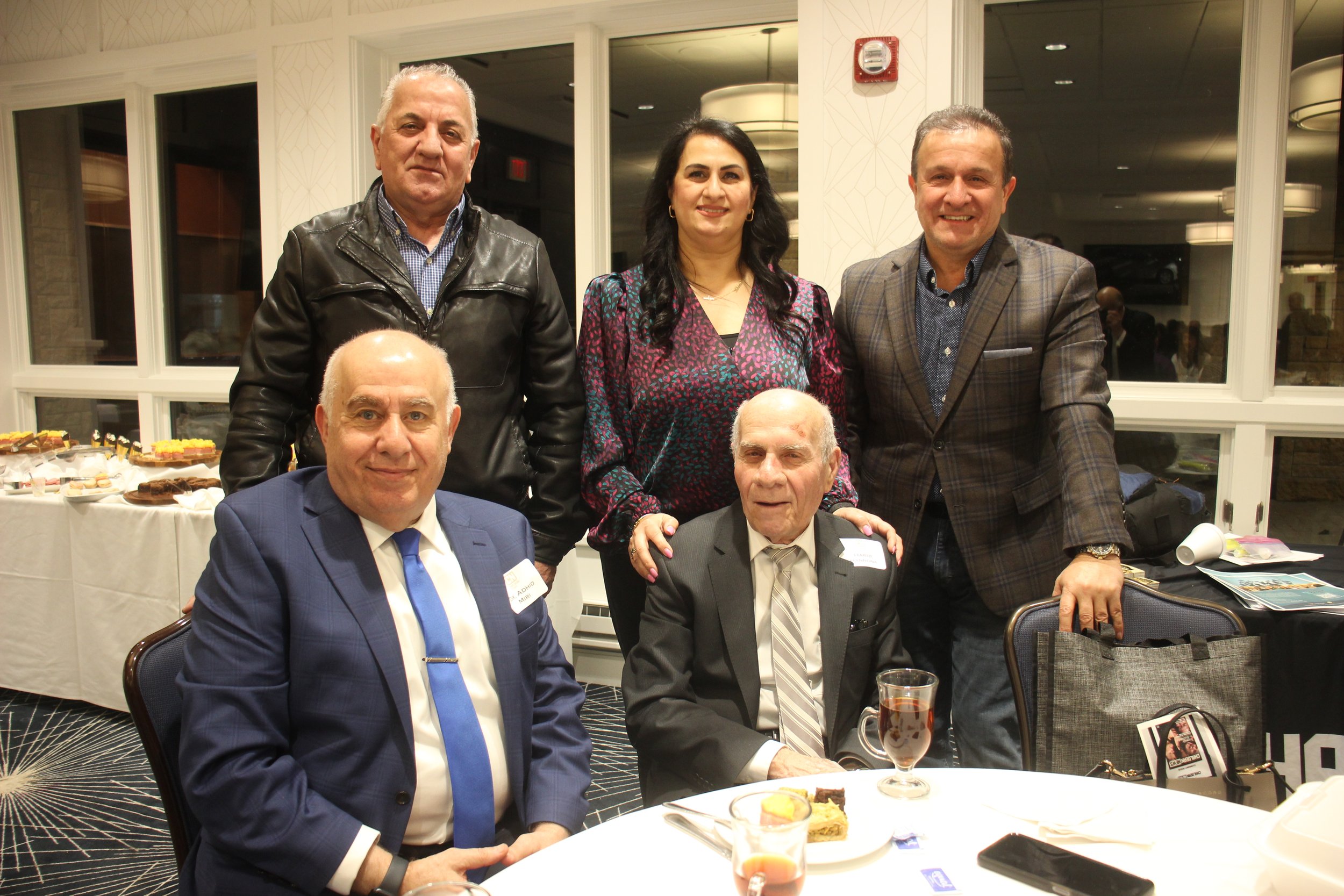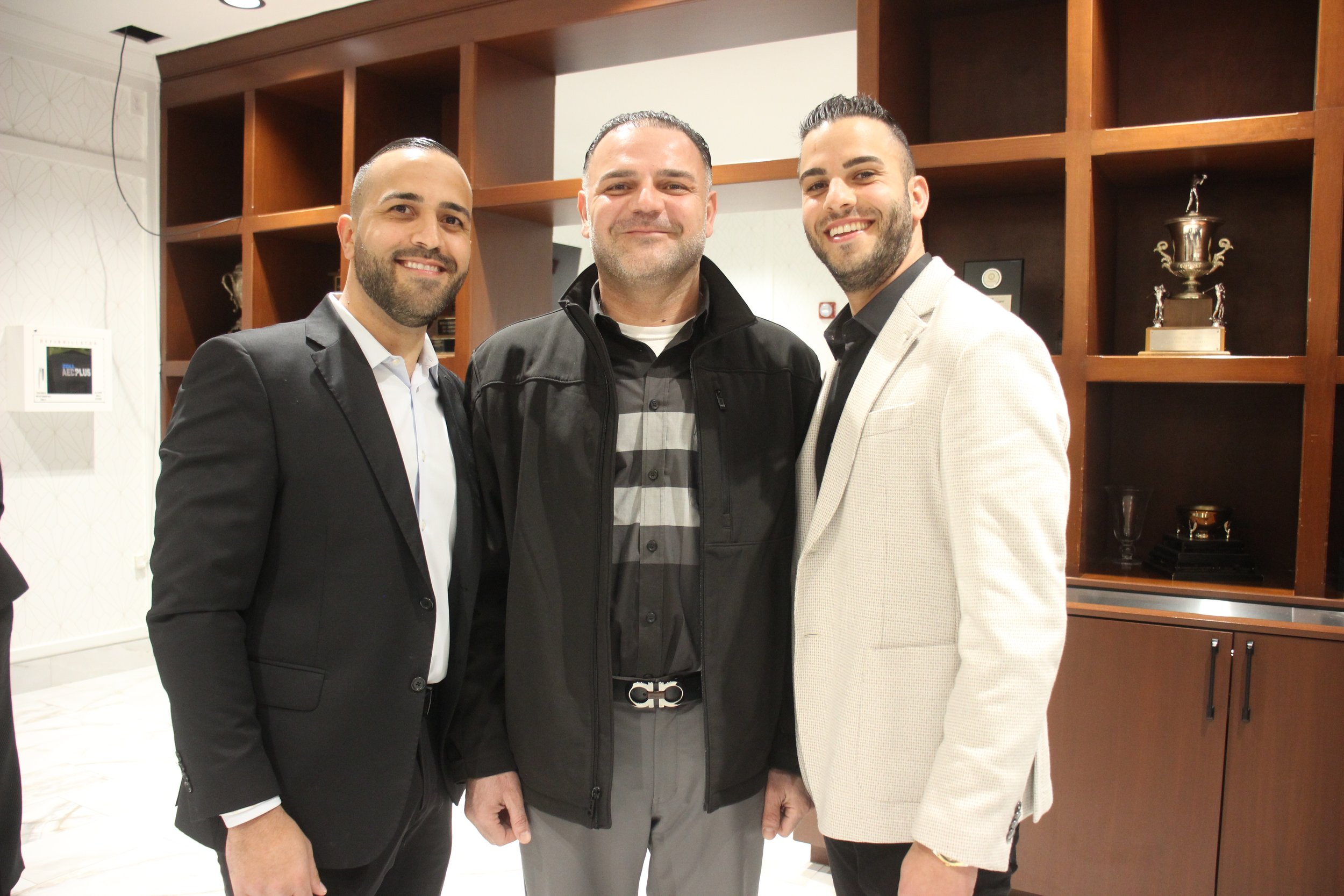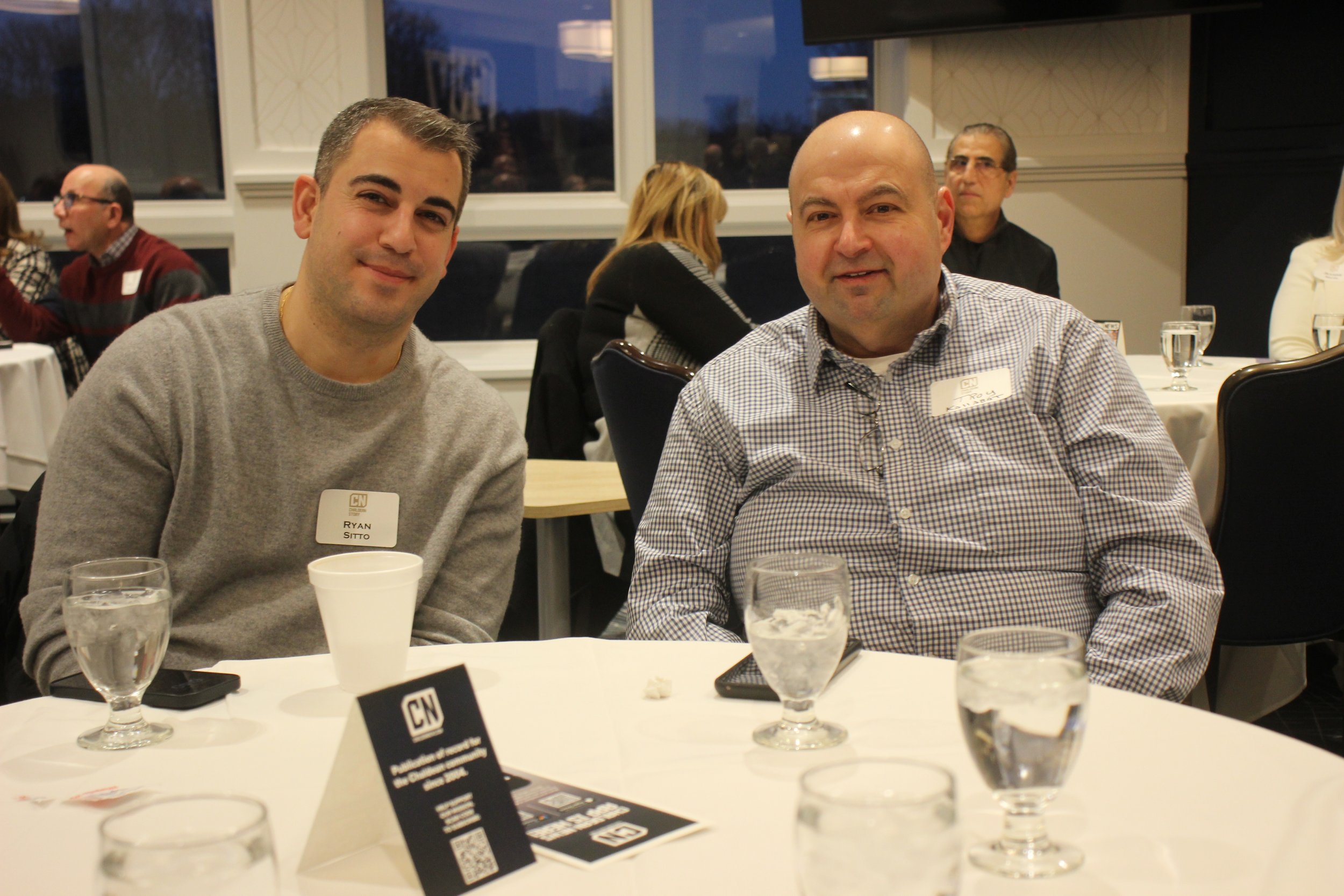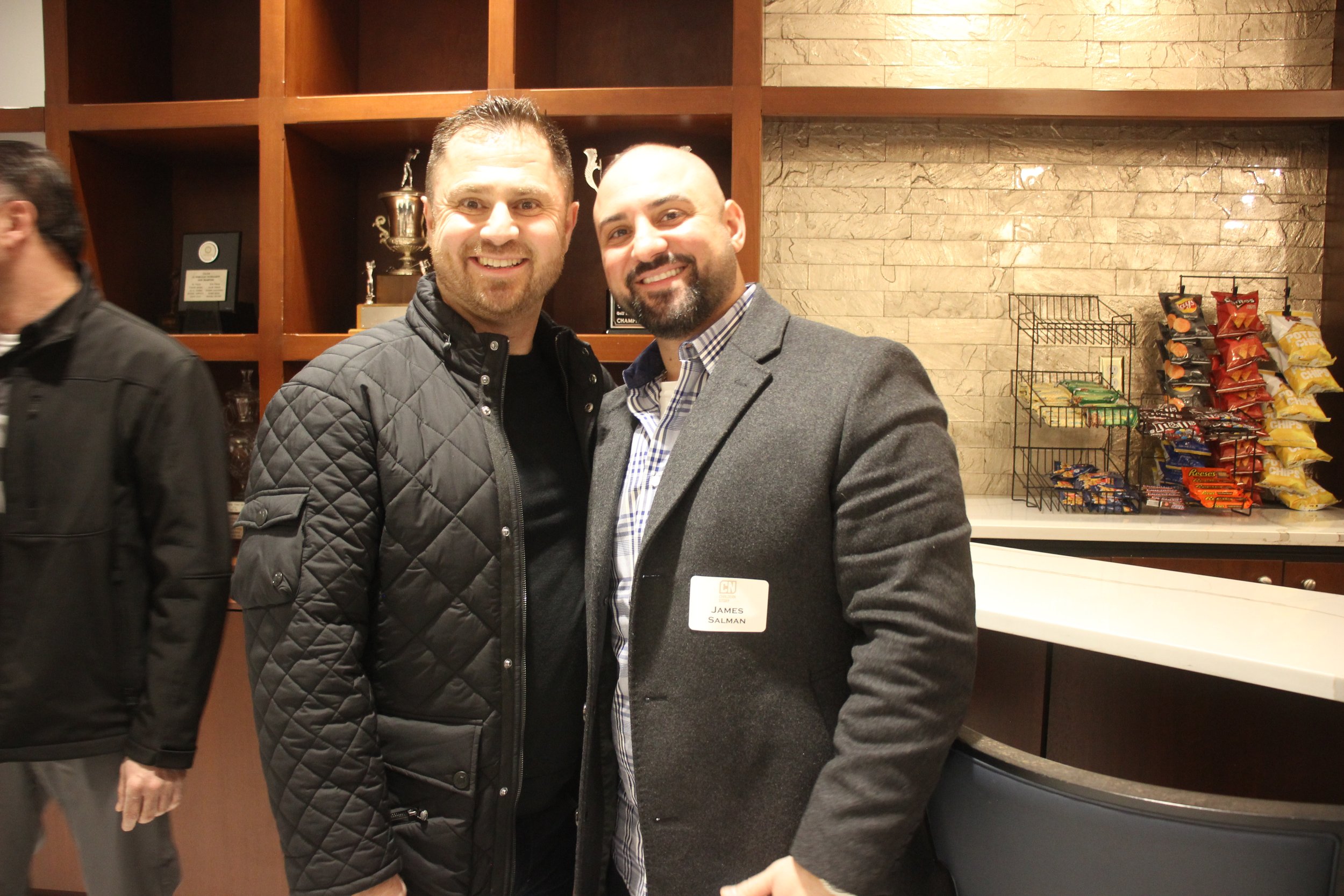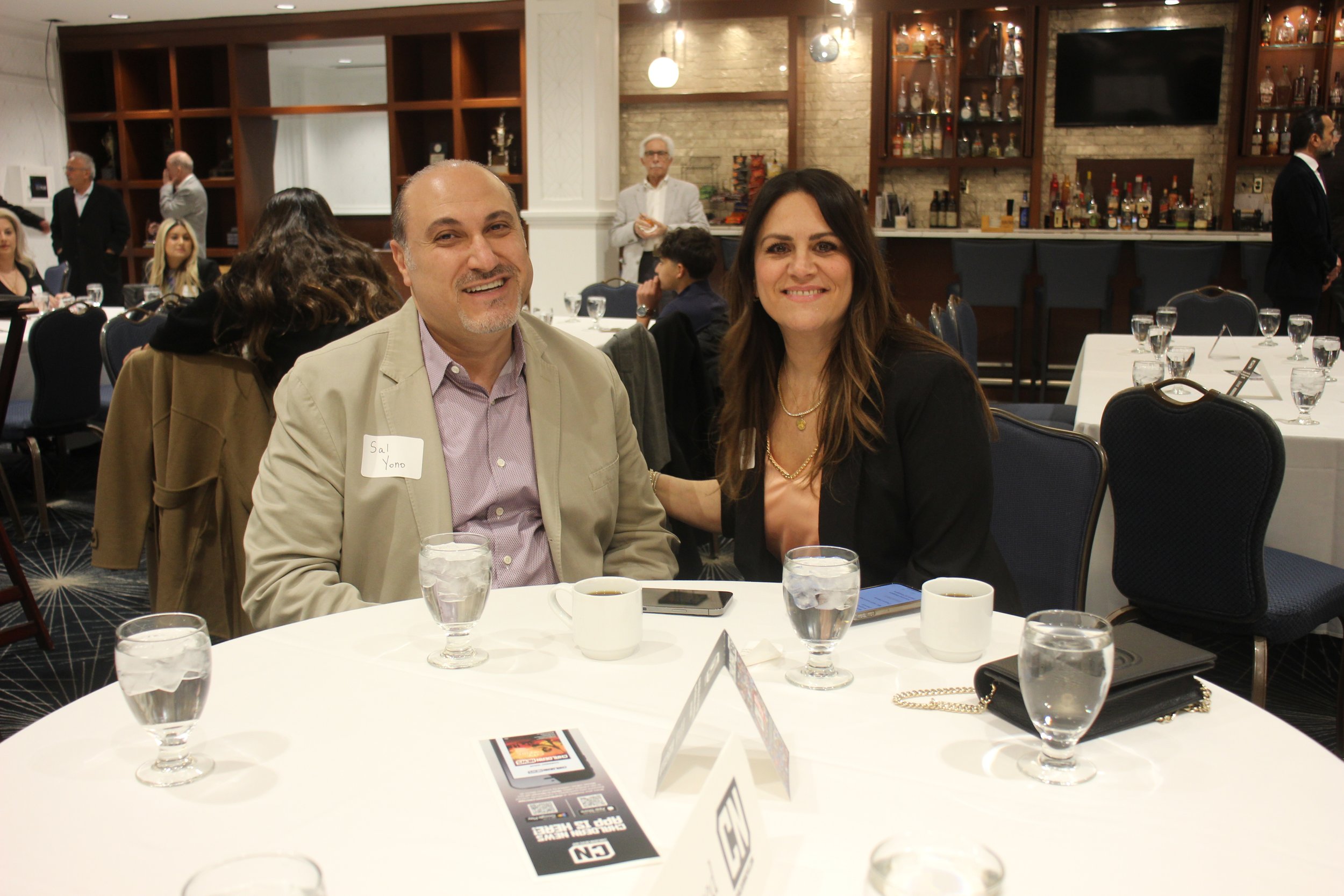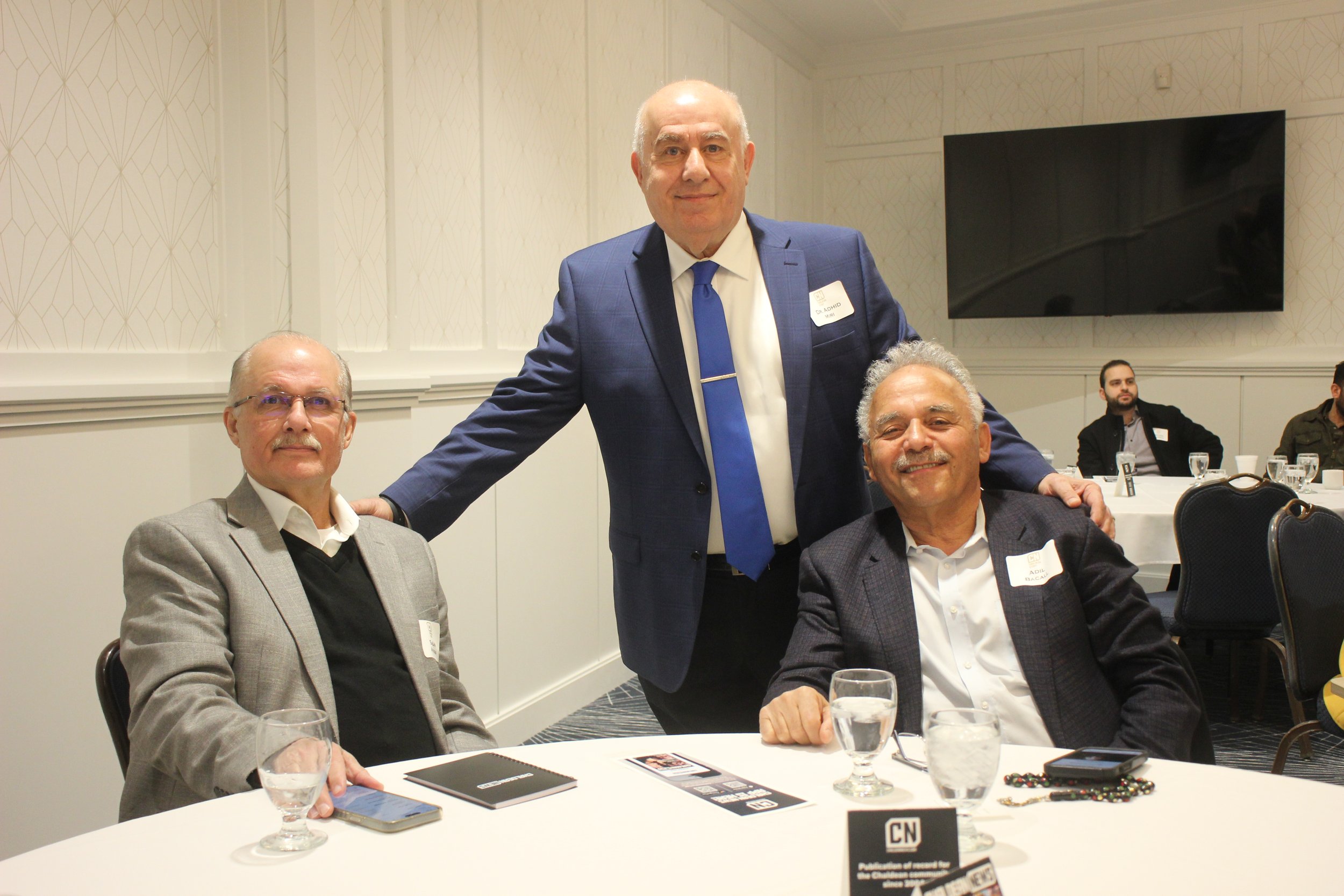Beyond the Silk Road
From left: Mike Dent, Jacob Bacall, Karam Banham and Jeff Denha.
Event explores four stories of trade and entrepreneurship
By Sarah Kittle
“Geography informs your fate,” says Dr. Adhid Miri. What he means by that is our environment has an immense influence on our chosen trade or livelihood. The Silk Road—interwoven passages, caravan routes, and byways that stretched from China to the eastern Mediterranean—connected with other important trade routes in ancient Mesopotamia, giving rise to a culture adept at trade.
For centuries, through the Akkadian (2nd millennia BC, sometimes regarded as the first empire in history) and Babylonian (18th-6th centuries BC) eras and even throughout the Middle Ages, the culture grew, and skills were honed. Around the 3rd century AD, the manufacture of silk garments began, and the price of intricately sewn garments and fantastic wares were haggled over in the local bazaar. The people of Iraq perfected trade and developed an entrepreneurial spirit.
Cities in Iraq became centers of commerce. Towns like Mosul (modern day Nineveh) were important stops along the route, specializing in goods such as embroidery, using silk from China as raw materials. Production of embroidered goods and the art of embroidery spread to other villages, becoming a local industry that wouldn’t exist without the trade route.
Besides Mosul, the cities of Ur, Akkad, Basra, and Baghdad were important centers for silk trade and production. The skill and expertise of the weavers residing in the region was as vital as their geographic locations as Silk Road hubs.
An interactive timeline on the Iraqi Embassy website states, “In the mid-13th century, Baghdad became a great center of civilizations at the crux of economic and informational trade routes. Universities were established, science, math, philosophy, and medicine flourished, and literature reached its height.”
Silk Road Roots
Mike Denha was born in Tel Kaif, Iraq nearly 90 years ago; he remembers riding a donkey to deliver produce. His family were farmers and the extended Denha family was known throughout the region for their tahini production. Mike was taught responsibility and compassion at home. “My mother used to say, ‘If you see a load down from a mule, don’t close your eyes,’” remembers Mike. “’If you can help them, put the load back up on the mule.’”
When you are delivering goods on the back of a mule, a “load down” spells disaster.
Mike came to Michigan in 1956 with $50 in his pocket, the first of his immediate family to arrive. He stayed with cousins for the first few years, finally finding his bride Nedal, a life mate who has stood by his side through good times and bad. “None of my success would be possible without her,” says Mike.
In his first store, Food Lanes, Mike employed newcomers from Iraq, knowing how hard they worked and trusting in their honesty and reliability. He credits their efforts, along with his wife’s support, for his success. Although they were the best workers he could ask for, being new, they often weren’t fluent in English. One day he entered the store, and it seemed empty. He wondered where everyone was and wandered around, finally finding a crowd in aisle two. It turns out, a new hire whose only English was “aisle two” was working that day.
The power couple of Mike and Nedal eventually bought 8 Mile Foodland. All six kids worked in their store, doing office work, wrapping meat, and cleaning the bathrooms. They worked hard for each other and with the other workers, and made the business a success, earning record profits.
Mike mentored his new immigrant hires, helping them learn business skills as well as English. His wife and partner Nedal mentored their wives, helping them acclimate to their new home and hosting get togethers in the Denha home. Most of them went onto start their own businesses; many of them today could buy and sell the Denha family’s current business, Brass Aluminum Forging Enterprises (BAFE), many times over. Mike is proud of that fact.
Mike, known within the community as “Uncle Mike,” was one of the panelists featured in an event called “Follow the Silk Road: From Mesopotamia to Michigan” held on February 29, 2024. Other speakers included Jacob Bacall, Karam Banham and Jeff Denha, Mike’s son and president/CEO of the family business. The discussion sought to represent the stories of different generations of merchants stretching from Tel Kaif to the Motor City.
The evening opened with an introduction from Dr. Adhid Miri, who educated the crowd of over 100 about the history of the Silk Road in Mesopotamia. He traced the route from China through the Middle East, emphasizing cities in modern day Iraq.
Jacob Bacall was born in Iraq and immigrated to Michigan in 1977, quickly establishing himself as a successful businessman. Upon observation of the community here in America, Jacob felt compelled to tell the story, not only for future generations but also for the community itself.
His first book, Chaldeans in Detroit, weaves the narrative of a generation of immigrants who fled oppression and set their sights on a better life in Michigan. This group would never take for granted the ability to worship freely and the opportunity to build a dynasty as a legacy for their successors.
Jacob asserts that business is in the Chaldean blood and that trade skills are innate to his people. The “$5 workday” that Henry Ford promised not only brought workers to Michigan but created a need for grocery stores and shopping centers in the area. Chaldeans and their entrepreneurial spirit not only took advantage of these niche needs but also created their own opportunities.
Karam Banham, who cofounded the Eastern Catholic Re-Evangelization Center (ECRC), a lay organization made up of volunteers that are committed to answering the call of St. Pope John Paul II to re-evangelize the world, was another panelist. He came to Michigan from Iraq in 1994, ready to learn.
With his brother-in-law and mentor Mike Koza, he cashed in on the video craze and invested in Mammoth Video. Riding that wave until the market cooled, he began looking for other opportunities. Casting his eye to the southern Unites States, he observed that gas stations in the region were larger and offered more choices and thought there might be something there.
Again, partnering with Koza, Karam created USA to GO, a gas station/convenience store model that disrupted the industry and changed the way motorists plan road trips. This successful enterprise allowed him to pursue his dream of seeking spiritual sustenance and becoming a revivalist. Besides ECRC, Karam founded REVIV3, a ministry that offers one-on-one support for Christians in their walk, and is heavily involved in World Youth Day, an event that brings young people from all over the world together to worship Jesus Christ. “The Church is alive,” says Banham, “and it’s powerful.”
Jeff Denha was the only panelist that was born in the United States. He shared the story of how the Denhas came to own and operate Brass Aluminum Forging (BAFE). Mike (Jeff’s dad) and his partner were in the business of buying distressed companies and figuring out how to make them profitable. They would resell the business once rescued or dissolve it if the business was unsalvageable. Brass Aluminum was one of those businesses.
The partner had moved on and the Denha family was left holding the company. Jeff felt that with hard work, BAFE could turn around and show a profit. “Entrepreneur” is a word much overused today, but it is a word that perfectly describes the spirit of Chaldean businesspeople. Not many in the community engage in production, tending toward buying and selling, but the Denhas are outliers.
Jeff, along with his siblings, was determined to “protect Mom and Dad’s money,” as he said during the program. BAFE produced samples which he sent out to vendors, but he didn’t sit around and wait after that. When he was contacted by a potential customer whose previous shop couldn’t meet their order, Jeff contacted the supplier and arranged to meet. The result was new business for BAFE and a mutually beneficial business arrangement with the other production company. That’s good business.
Full Circle
As the vibrant tapestry of Chaldean culture weaves its way across continents, from the ancient sands of Mesopotamia to the busy roadways of Michigan, the journey along the modern Silk Road shows resilience, entrepreneurship, and a commitment to preserving cultural heritage.
Through their thriving businesses and unwavering dedication, the Chaldean community continues to bridge the gap between past and present, enriching both their adopted homeland and the legacy of the Silk Road itself. As we traverse this cultural corridor, it becomes clear that the spirit of commerce and cultural exchange knows no bounds, reminding us that the ties that bind us are as enduring as the threads of silk that once connected distant lands.


